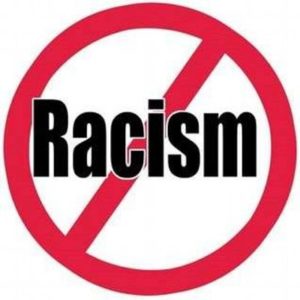Why we must gain a true understanding of the issue
Racism can be defined as sin. What is sin? In the Christian context, sin is anything that exists outside the design, purpose, and person of God. Sin is also what defines the world we live in and its political, cultural, environmental, scientific, and human development. Racism, then, is just another form of the fallen state of humans.
 It is sad when people interpret scripture in a misleading way in order to defend racism and slavery. The story of Noah’s curse on Ham to be a servant of Japheth (Genesis 9:24-27) has been misconstrued and utilized to teach that God approves slavery and the oppression of African- Americans. The name Ham means “black” or “dark.” This information has led to the false belief that black slaves were under the curse of servitude. But in fact, Noah was cursing the descendants of Canaan, not Ham, in a way that had to do with sexual sins. The Canaanites were known for their sexual misbehavior.
It is sad when people interpret scripture in a misleading way in order to defend racism and slavery. The story of Noah’s curse on Ham to be a servant of Japheth (Genesis 9:24-27) has been misconstrued and utilized to teach that God approves slavery and the oppression of African- Americans. The name Ham means “black” or “dark.” This information has led to the false belief that black slaves were under the curse of servitude. But in fact, Noah was cursing the descendants of Canaan, not Ham, in a way that had to do with sexual sins. The Canaanites were known for their sexual misbehavior.
Some also believe that in the tower of Babel story (Genesis 11:1-9), God condemned, created, and separated the races. But races were part of God’s plan and design for humanity from the beginning. The tower of Babel story refers instead to geographical and political divisions.
Diversity is another aspect of God’s design and beauty. Man, in his fallen, self-dependent state, has created out of that diversity reasons for hatred, slaughter, dominion, slavery, war, and chaos.
In the context of scripture, Jesus Christ incarnated, died, and resurrected to restore in humanity the untainted image of God and to forgive and eliminate the sin that defines us. As we accept, by faith, this restoration, we die to the insecurities, fear, and delusions that characterize our fallen human traits. We are each made into a new creation, a creation that is above the traumas of divisions.
Repenting from what we believed before coming to Christ is the key to resolving this racist dilemma. And a crucial aspect is the renewal of our minds and understanding.
Those who have received this new understanding and have been set free from emotional, mental, and psychological illusions have the responsibility to teach the newborn babes in Christ. It is also their responsibility to forgive, welcome, and embrace their sisters and brothers of a different race.
Our society could have symposiums, debates and political and social humanistic agendas to find a way to bring racism to an end. But all human reasoning will be of no avail. Slavery was abolished, but segregation continues. Repressed and emotional conflicts stemming from the effects of racism still exist. Healing will be possible only through supernatural means. Only the teaching of the gospel and Christ’s Word can “pierce until it divides soul from spirit, joints from marrow; it is able to judge the thoughts and intentions of the heart” (Heb. 4:12).
John Webster describes evangelical freedom: “It is Evangelical because it is grounded in the joyful reversal and reconstitution of the human situation of which the gospel speaks.” We are bound to God’s grace and God’s call and liberated from all other bonds that we may be free to live in the truth.
It is the church’s privilege to ease and heal the pains of racism, both physical and psychological.
It is the church’s responsibility to teach the doctrine of the Word.
It is the church’s obedience to the command of Jesus when he addressed Peter at the Sea of Tiberias.
Jesus asked Peter, “Do you love me?” (John 21:15- 17). The church must search her heart and answer that question.
The simple truth is that if the church really loves the Lord, she can obey not only the command Jesus gave to his disciples to teach the gospel to all nations but also the commands he gave Peter:
“Feed my lambs” (John 21:15d).
“Tend my sheep” (John 21:16c).
“Feed my sheep” (John 21:17d).
Since all humanistic, psychological, and political efforts to end the human tendency toward autonomism and exclusion in the racist dilemma of the 21st century have failed, this should be the church’s responsibility and priority. The church must recognize and rest in the promise given to her. She will prevail over all darkness and reestablish her position as an entity established by Christ and empowered by the Holy Spirit to do God’s will. And as she does so, she will walk alongside him to establish His kingdom.
Gladys Rodriguez is an Aspirant in the process of ordination for priesthood in the Episcopal Church diocese of Florida. She is currently studying for an MDIV at Reformed Theological Seminary.
